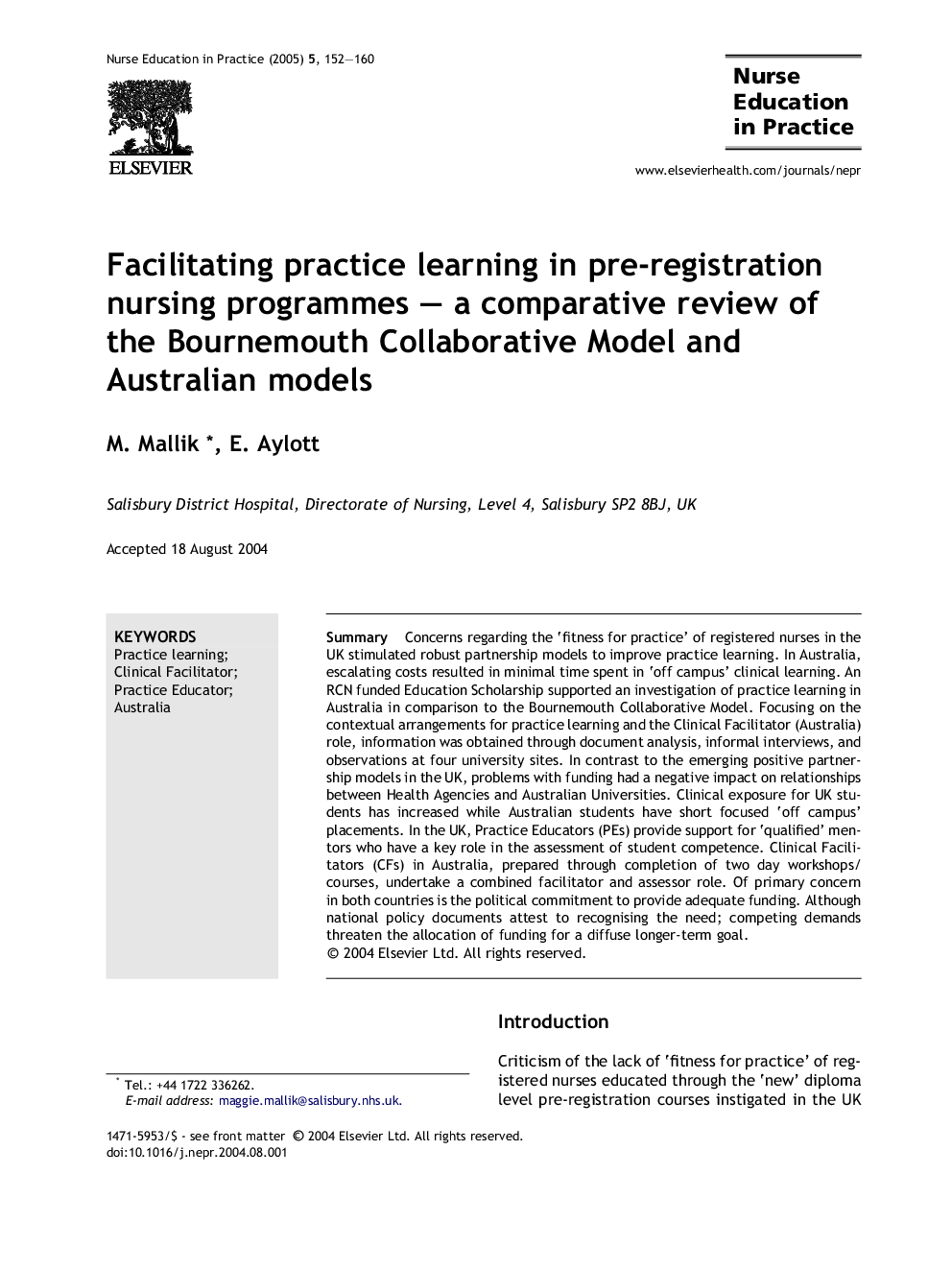| Article ID | Journal | Published Year | Pages | File Type |
|---|---|---|---|---|
| 10316175 | Nurse Education in Practice | 2005 | 9 Pages |
Abstract
Concerns regarding the 'fitness for practice' of registered nurses in the UK stimulated robust partnership models to improve practice learning. In Australia, escalating costs resulted in minimal time spent in 'off campus' clinical learning. An RCN funded Education Scholarship supported an investigation of practice learning in Australia in comparison to the Bournemouth Collaborative Model. Focusing on the contextual arrangements for practice learning and the Clinical Facilitator (Australia) role, information was obtained through document analysis, informal interviews, and observations at four university sites. In contrast to the emerging positive partnership models in the UK, problems with funding had a negative impact on relationships between Health Agencies and Australian Universities. Clinical exposure for UK students has increased while Australian students have short focused 'off campus' placements. In the UK, Practice Educators (PEs) provide support for 'qualified' mentors who have a key role in the assessment of student competence. Clinical Facilitators (CFs) in Australia, prepared through completion of two day workshops/courses, undertake a combined facilitator and assessor role. Of primary concern in both countries is the political commitment to provide adequate funding. Although national policy documents attest to recognising the need; competing demands threaten the allocation of funding for a diffuse longer-term goal.
Related Topics
Health Sciences
Nursing and Health Professions
Nursing
Authors
M. Mallik, E. Aylott,
